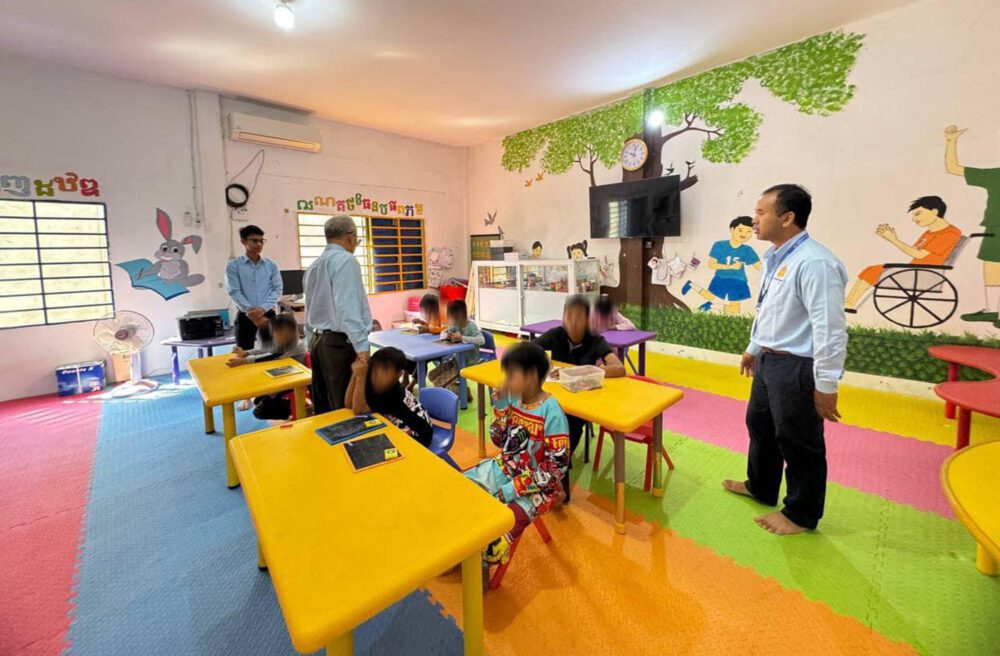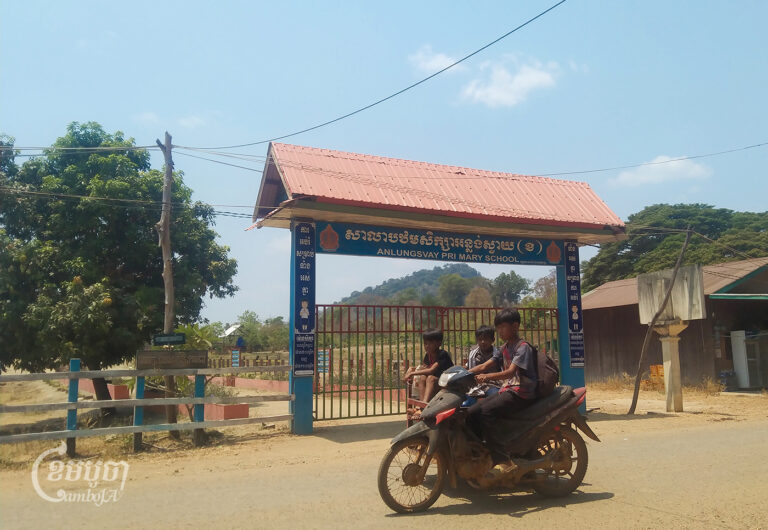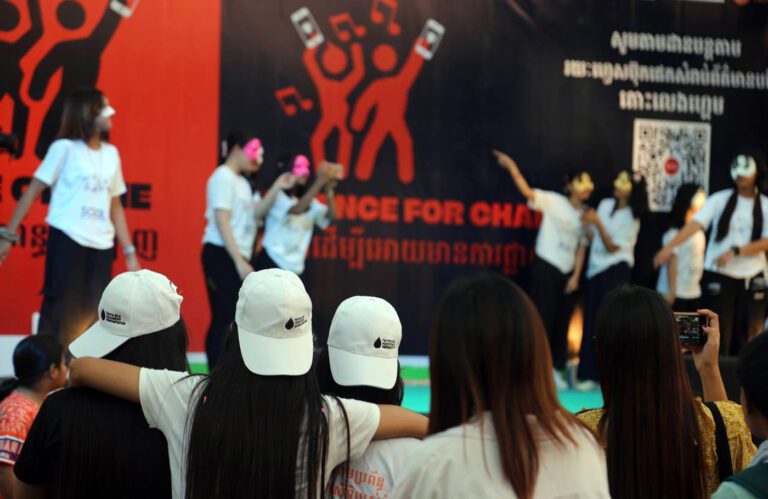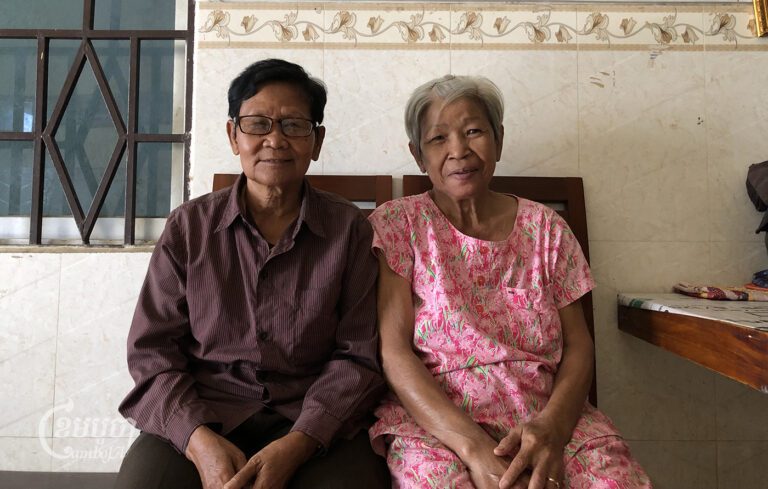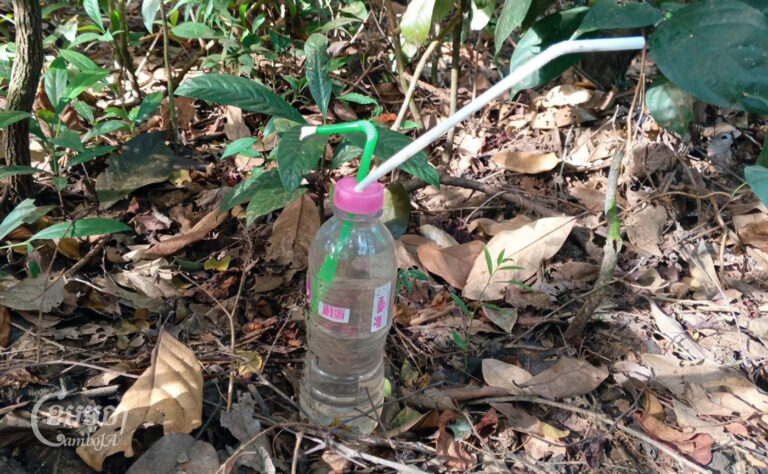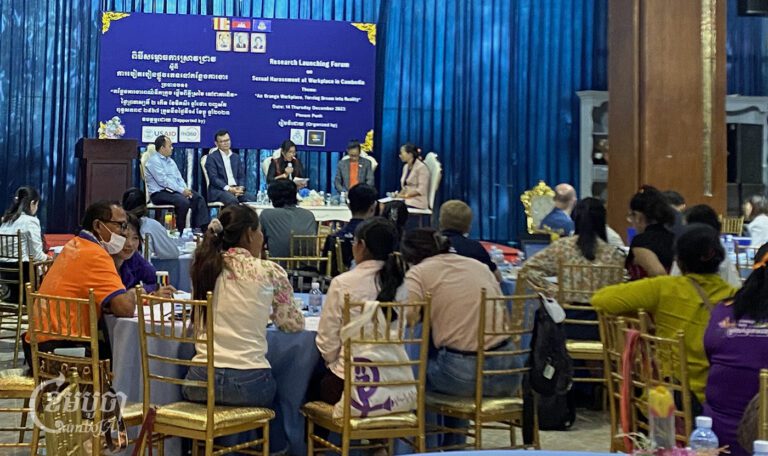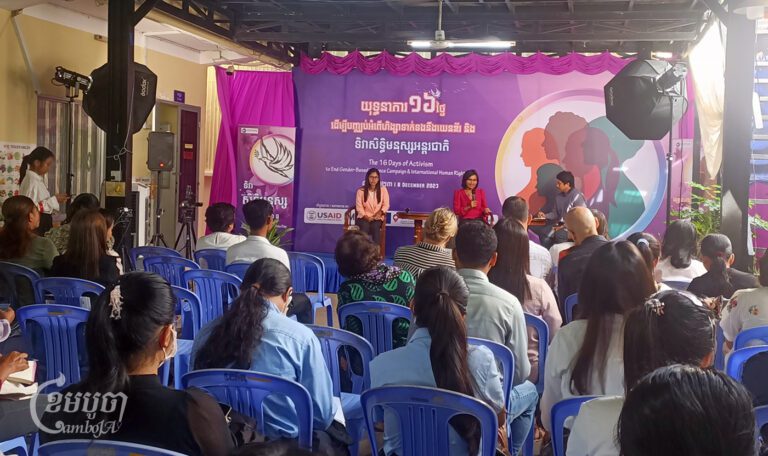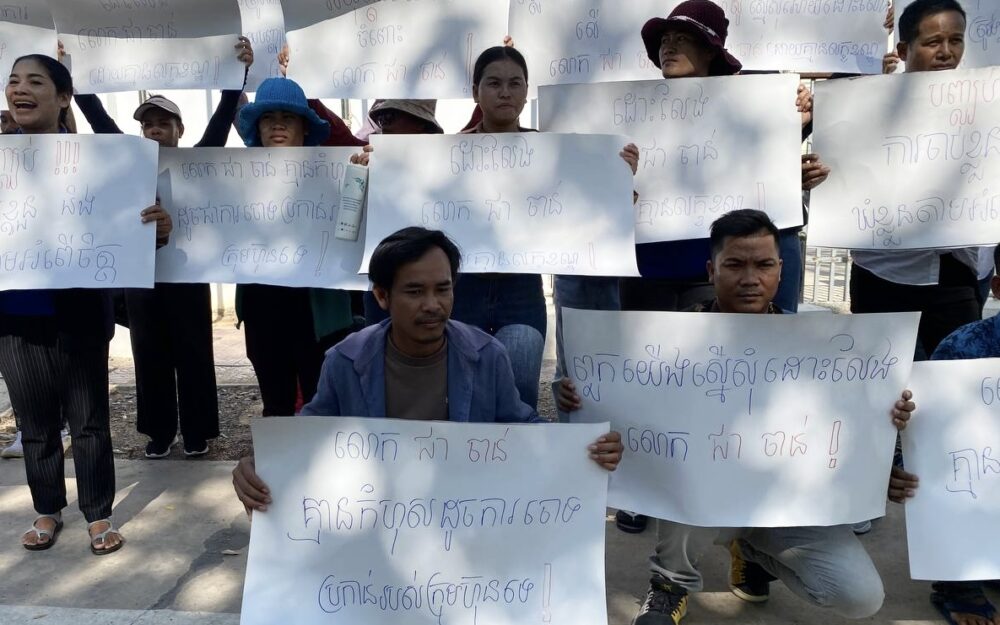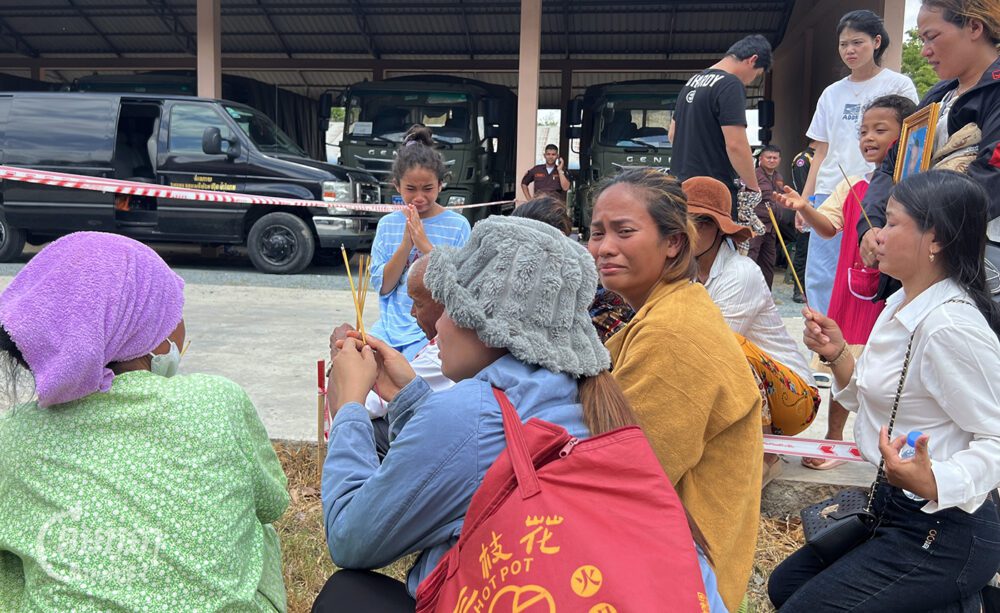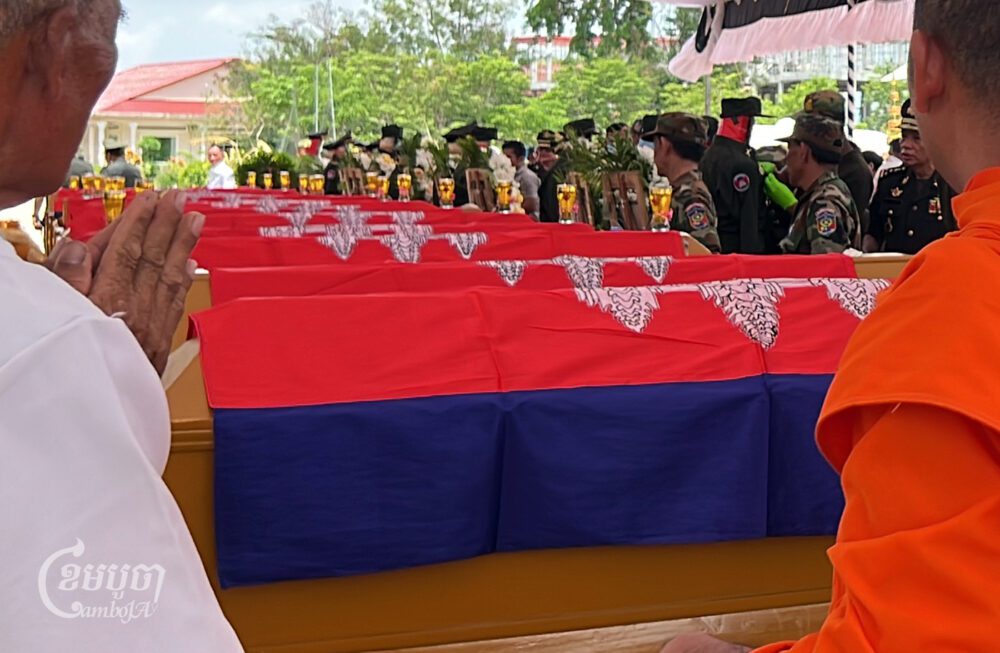Children with autism have risen to more than 20,000 in Cambodia, said Chan Sarin, principal of Takhmao Special Education High School in Kandal province, who quoted figures from an April 2, 2019 research. This high number is attributed to a heightened awareness and understanding of the condition among parents and caregivers.
Sarin, whose school is accredited by the government, provides education for children with Autism Spectrum Disorder (ASD) from kindergarten to Grade 12.
He told CamboJA that the number of children diagnosed with autism has seen a notable increase since 2020, which is indicative of a growing identification of autism spectrum disorder in children across Cambodia.
“My concern is that children [with autism] in some provinces do not have [special education] schools. Parents are worried and have contacted me in some provinces to [ask] how to get them [children with autism] to school,” he said.
His school is challenged by the fact that the number of autistic children looking for support since 2019 is around 600, but the school has space for only 300 students. This has prompted plans to build a new facility to accommodate an additional 200 students by 2025 or 2026.
He is very concerned that while the number of students is increasing, training resources are still limited, including skills which focus on teaching students with autism.
“The Ministry of Education, Youth and Sport [MoEYS] policy is interested in [ASD], but the number of children keeps increasing, thus the demand is increasing, [but] the ministry cannot respond,” he said.
Sopaul Somalis, a 44-year-old parent of an autistic child, told CamboJA that there people are more open minded about autism now compared to five years ago when they did not fully understand the condition. That said, there is still a large percentage of people who are not fully aware of autism, said the owner of Che Malis Porridge Shop in Peng Huot Boeung Snor in Phnom Penh.
While there are many public and private counseling centers for children with autism, offering more opportunities for parents to seek consultations, unprofessional clinics continue to operate, which could result in misdiagnosis of the condition.
“As a mother of an autistic child, I would like to see Cambodia have an increased understanding of autistic children in future and not discriminate against them but care for them,” she said.
Somalis added that parents with autistic children urge the government and relevant ministries to promote awareness in autism and strengthen the protection of children with autism to reduce discrimination against children with autism.
They also asked for more special education schools, such as public schools and non-governmental organization schools, to help parents ease the burden of parents who cannot afford to send their disabled children to private schools.
Hoeur Sethul, president of Cambodia Association for Counselors and Psychologists, said the Diagnostic and Statistical Manual of Mental Disorders (DSM), published by the American Psychiatric Association, stated that autism is congenital, meaning that children are born with it. Parents with autistic children can observe their behavior between one and one-and-a-half years of age.
He said children born with autism have social interaction difficulties, and sensory sensitivities related to taste, touch, hearing, sight and smell. According to the DSM, ADS is categorized under four levels – mild, moderate, severe, and slightly severe.
According to Sethul, who specializes in audio consultation for children with autism, parents do not have a clear understanding of ASD. Only 30 percent understand the condition, compared to developed countries.
Education and discussion with doctors can help with the treatment of autistic children and their improvement even if they were born with autism.
“Some parents think that children with autism can be cured, but there is no cure. Children with autism require long-term help [rest of their lives],” he said, while adding that Cambodia still lacked specialists and services that focus on consultations with parents with autistic children.
Sun Ratana, director of Welfare of Person with Disabilities Department of the Ministry of Social Affairs, said it is not possible to know the exact number of autistic children because the census is not yet available. The census would take 10 years to complete as it started in 2020.
In the future, the civil society’s goal is to collect data on children with autism once a year to know their prognosis to learn more about the condition, whether it (data) has risen or decreased to easily manage this issue.
He added that the protection for children with autism is not yet sufficient for children as schools for autistic children are not available nationwide. MoEYS is working on it and plans to expand this segment of the education sector.
“We must collect data on the number of autistic children in the country and put them into a national database, so we can know how many autistic children there are in the area [to provide] services [for special education],” he said. Based on the data, the government will be able to match the special education needs to the demand in the area.
Ratana said conducting a census also had its challenges because there was a shortage of volunteers to collect the data and some people were not open to sharing information.

Meanwhile, a parent with an autistic child posted an article on Facebook on December 29, 2023, highlighting how their child experienced discrimination on the playground.
The article stated that children with autism face lifelong discrimination and rejection by society, which poses a serious setback for them, as it affects their right to live in a society.
The parent said children have rights too, whether it is a right to life, right to food, right to education and freedom.
“Even if there are children who lack education, [let them] play because children don’t know anything,” the parent said, adding that they should be understood, as they are different from adults who make mistakes.
There should be education on ASD, which can be taught in education centers, although they are not up to par yet.
“Why is there discrimination? It degrades our society as a whole. Children have a right to life and are very important to society,” the article writes.
MoEYS spokesperson Khuon Vichheka said they have partnered with organizations which work with autistic children to incorporate programs on autism in schools. The ministry also operates a public school in Takhmao City and has developed special policies to include autism education skills with partner organizations for teachers.
In addition, the policies set out special education institutes to train teachers to teach children with disabilities including those who are sight impaired, and ASD children.
“Another program the ministry is working on is a textbook. We have general children’s textbooks, but we also take into account every special child’s needs including autistic children and children with intellectual disabilities,” she said.
The ministry has schools which allow children with autism, Vichheka said, pointing out 86 class integration that support students with intellectual disabilities and autism in 26 cities in 12 provinces. This takes place in 49 schools, involving a total of 942 students, including 301 female students. There are altogether 178 teachers in the program.
Integration class refers to a school with classes for autistic students, not a separate school for autistic students.
Vichheka said there are 92 trainers training special education teachers in ASD and information classes and 1,609 trainers for teachers educating students who are sight and hearing impaired. The program trains teachers who manage disabled and ASD children for grades one to 12 and to help them sit for the high school diploma exam.
However, she declined to comment on the number of children with autism who could continue their studies at university.
Ministry of Labour and Vocational Training spokesman Kata Orn declined to answer questions relating to the employment of youths with autism.
According to the World Health Organization in November last year, one in 100 children is said to be autistic in the world. This estimate represents an average figure.
Some well-controlled studies have reported figures that are substantially higher. The prevalence of autism in many low- and middle-income countries is unknown.


